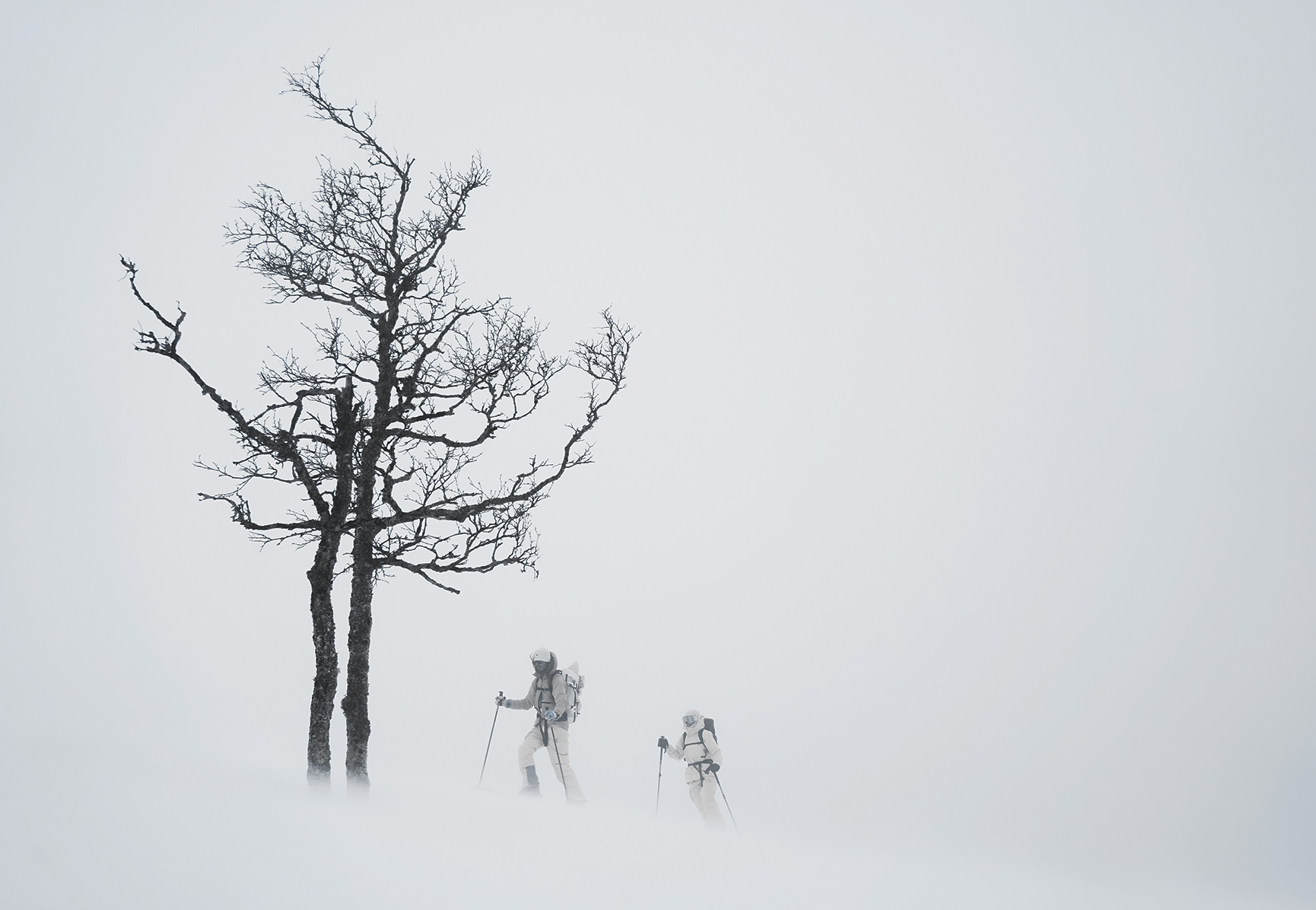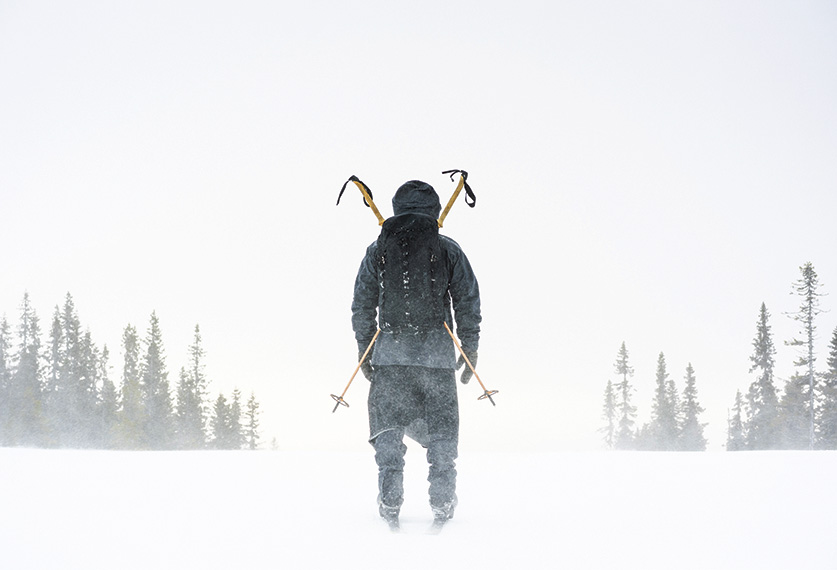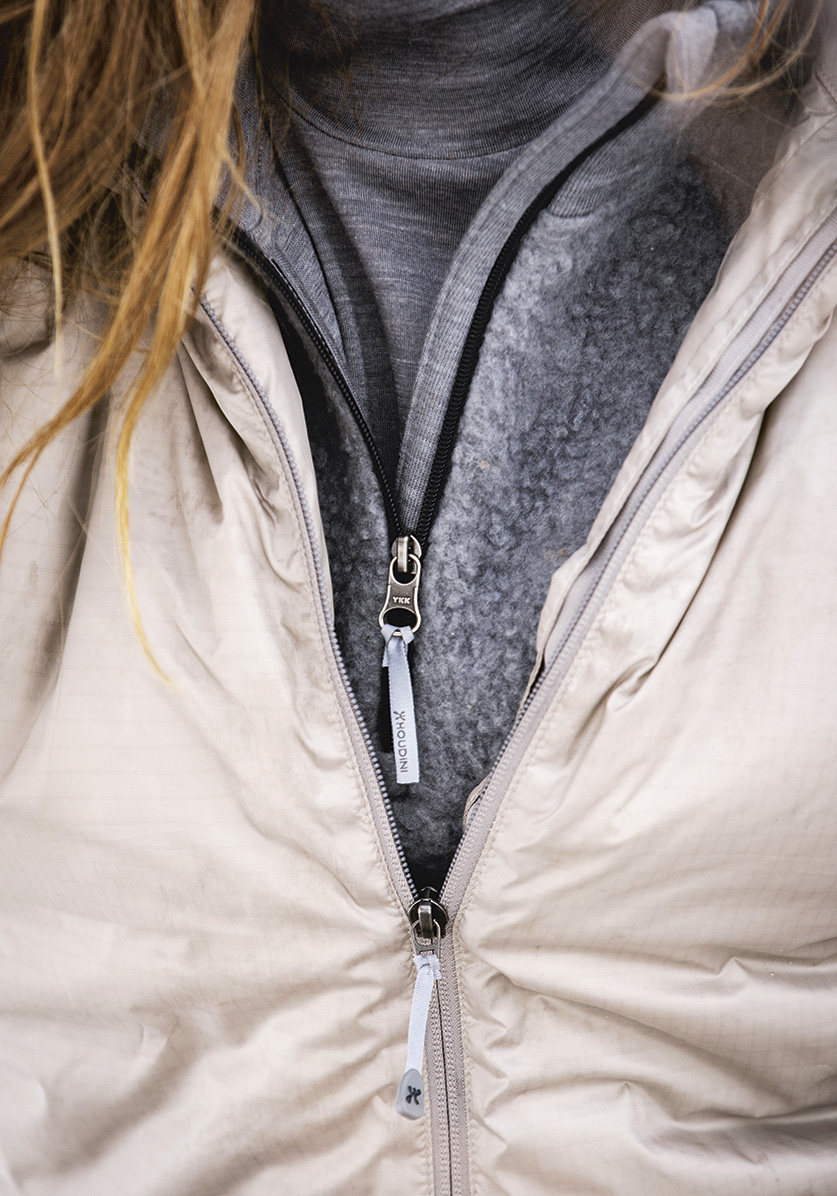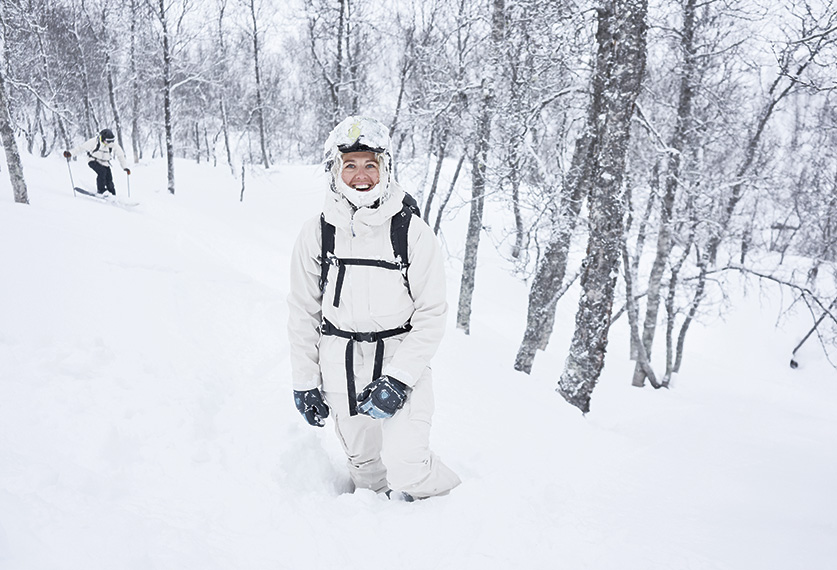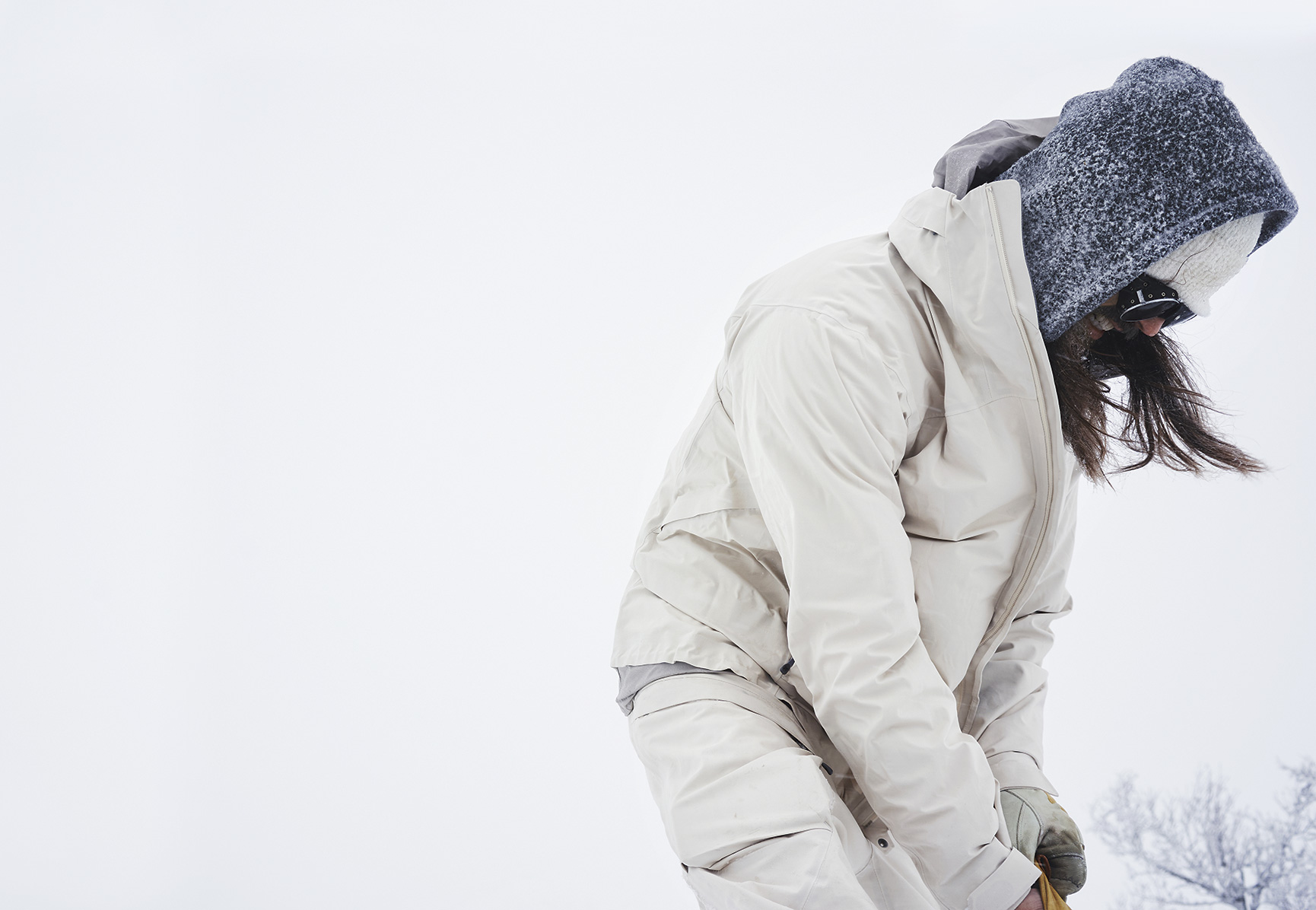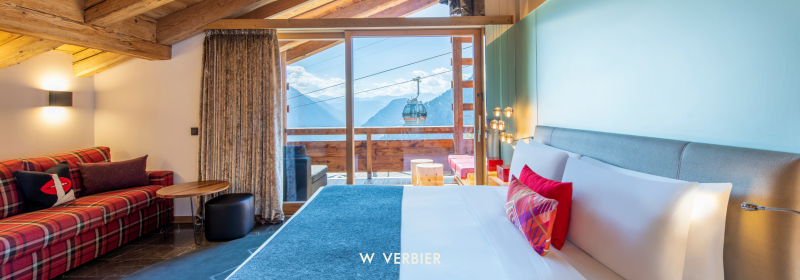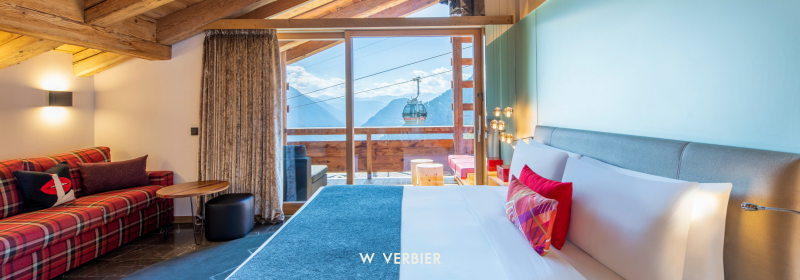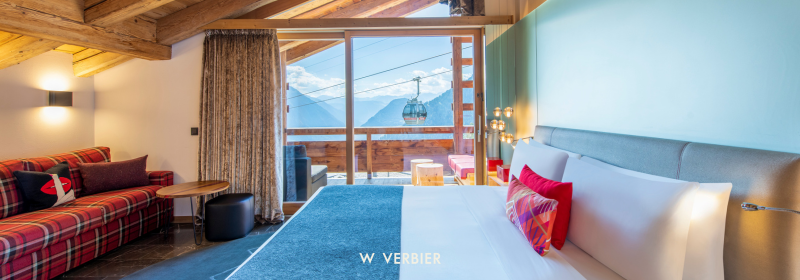
Houdini
“Knowledge, love, beauty and hope…”
Born at the end of the 1980s from a circle of friends with a taste for adventure, the Swedish outdoor brand Houdini has always been guided by values — and by a sharp ecological conscience. Its CEO, Eva Karlsson, shares the story of a company she describes as “holistic.”
“A philosopher once said that all we need in life is knowledge, love, and beauty. I agree with him — but I would add hope. Hope that change is possible, that collaboration is the way forward, and that we are capable of making it happen.” These words come not from a thinker or a guru of personal development, but from Eva Karlsson, the 53-year-old CEO of Houdini.
A company born almost by chance
Still little known in Switzerland, Houdini enjoys cult status in Scandinavia, Germany, Japan, and the United States. It all began in the late 1980s with a group of friends passionate about climbing and ski touring. Mostly women, some of whom remain involved to this day. “At the time, outdoor clothing was often heavy, bulky, and impractical, so these friends simply started making their own,”
Karlsson recalls. The pieces they created soon found their way into the small but demanding Swedish outdoor scene.
The company was officially founded in 1993. Why the name referencing legendary magician Harry Houdini (1874–1926)? “Because in the mountains, you often wish you could get out of a tricky situation by magic, just like he did,” Karlsson says with a smile. Over the years, Houdini was led exclusively by women CEOs, the business prospered — until 2001, when the brand reached a turning point.
Choosing virtue over size
“When I came on board that year, we realized how devastating the textile industry could be for the very nature we loved so much,” says Karlsson, herself a passionate hiker and skier. “Those luminous mornings that set the birds singing… they remind you why we need to be part of the solution, not the problem.” From that moment, Houdini set out on a mission: to become fully circular and zero-waste. With a guiding ambition: “We don’t want to be the biggest, we want to be the best — and the most virtuous.”
At Houdini, there is no hollow greenwashing, no buzzwords about “green growth.” Like Patagonia, the brand insists on a sharp ecological conscience. But it doesn’t see Patagonia as a model. “Our model is Mother Nature. She works in a 100% circular way — and so should we. Some companies still harm the environment while donating heavily to environmental causes. For us, that makes no sense,” says Karlsson firmly.
A holistic enterprise
Based in Stockholm, Houdini today counts about 50 employees and an equal number of points of sale. Its revenues — discreetly kept private — are largely reinvested in research and development. Designed for conscious “prosumers” intent on aligning their choices with their ideals, Houdini’s garments are functional, versatile across disciplines, elegantly understated, and quietly timeless. No flashy colors, no loud logos. Above all, they are built to last — a little expensive, perhaps, but “engineered to withstand at least 1,000 uses and then be recycled,”
says Karlsson. A second-hand market, created more than a decade ago, extends their life further and makes them accessible to more modest budgets.
Collaboration, too, has become a cornerstone. Working with scientists and industrial partners in search of sustainable solutions, Houdini has made open source a defining value. Instead of patenting its innovations, the company shares them freely — “because collaboration moves us forward faster and further than competition ever could.”
Karlsson concludes with a reflection that feels like a credo: “At Houdini, we see ourselves as human beings before professionals. I am a mother, a woman, a sports enthusiast, a nature lover — and a CEO. These identities are intertwined. We are a holistic company, respectful of the needs of nature and of our people alike.”
